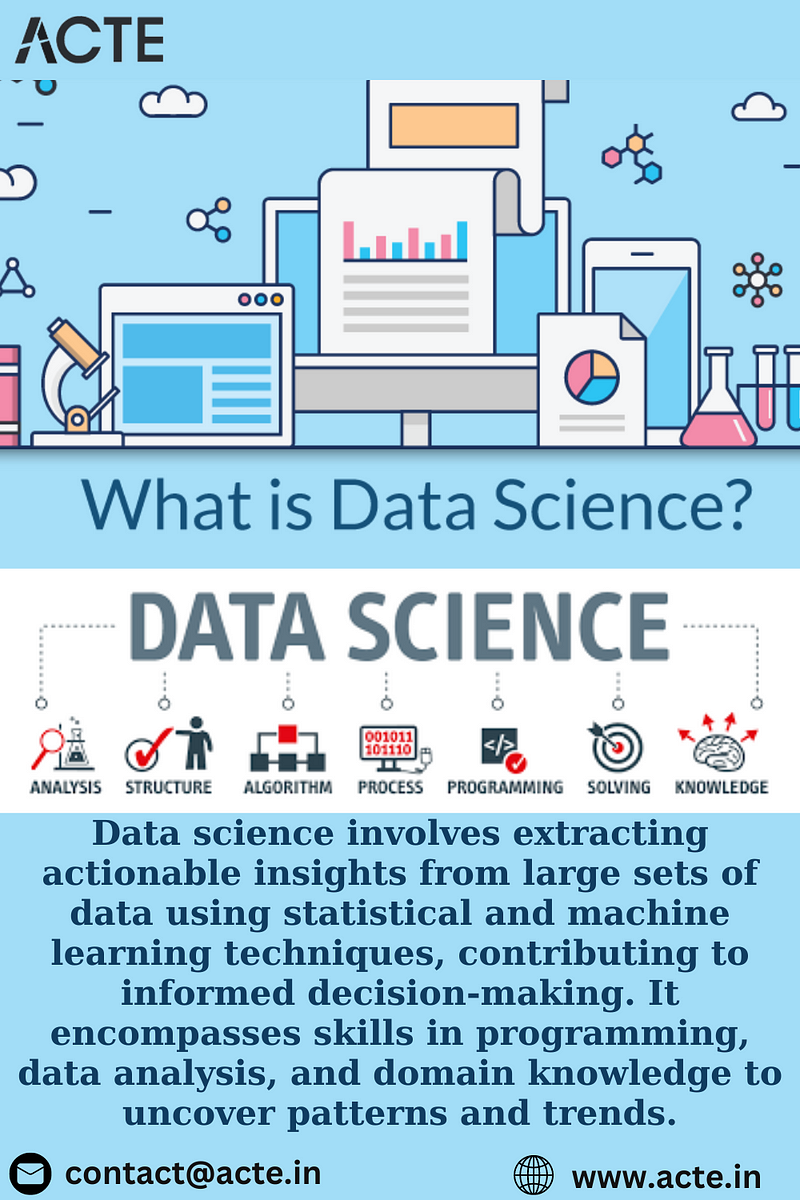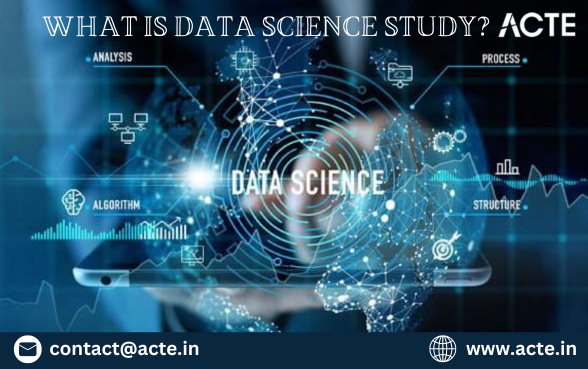The Ever-evolving Canvas Of Data Science: A Comprehensive Guide
- - Category: Online Education
- - 15 Dec, 2023
- - Views: 17
- Save
The Ever-Evolving Canvas of Data Science: A Comprehensive Guide
In the ever-evolving landscape of data science, the journey begins with unraveling the intricate threads that weave through vast datasets. This multidisciplinary field encompasses a diverse array of topics designed to empower professionals to extract meaningful insights from the wealth of available data. Choosing the Top Data Science Institute can further accelerate your journey into this thriving industry. This educational journey is a fascinating exploration of the multifaceted facets that constitute the heart of data science education.

Let’s embark on a comprehensive exploration of what one typically studies in the realm of data science.
1. Mathematics and Statistics Fundamentals: Building the Foundation
At the core of data science lies a robust understanding of mathematical and statistical principles. Professionals delve into Linear Algebra, equipping themselves with the knowledge of mathematical structures and operations crucial for manipulating and transforming data. Simultaneously, they explore Probability and Statistics, mastering concepts that are instrumental in analyzing and interpreting data patterns.
2. Programming Proficiency: The Power of Code
Programming proficiency is a cornerstone skill in data science. Learners are encouraged to acquire mastery in programming languages such as Python or R. These languages serve as powerful tools for implementing complex data science algorithms and are renowned for their versatility and extensive libraries designed specifically for data science applications.
3. Data Cleaning and Preprocessing Techniques: Refining the Raw Material
Data rarely comes in a pristine state. Hence, understanding techniques for Handling Missing Data becomes imperative. Professionals delve into strategies for managing and imputing missing data, ensuring accuracy in subsequent analyses. Additionally, they explore Normalization and Transformation techniques, preparing datasets through standardization and transformation of variables.
4. Exploratory Data Analysis (EDA): Unveiling Data Patterns
Exploratory Data Analysis (EDA) is a pivotal aspect of the data science journey. Professionals leverage Visualization Tools like Matplotlib and Seaborn to create insightful graphical representations of data. Simultaneously, they employ Descriptive Statistics to summarize and interpret data distributions, gaining crucial insights into the underlying patterns.
5. Machine Learning Algorithms: Decoding the Secrets
Machine Learning is a cornerstone of data science, encompassing both supervised and unsupervised learning. Professionals delve into Supervised Learning, which includes algorithms for tasks such as regression and classification. Additionally, they explore Unsupervised Learning, delving into clustering and dimensionality reduction for uncovering hidden patterns within datasets.
6. Real-world Application and Ethical Considerations: Bridging Theory and Practice
The application of data science extends beyond theoretical knowledge to real-world problem-solving. Professionals learn to apply data science techniques to practical scenarios, making informed decisions based on empirical evidence. Furthermore, they navigate the ethical landscape, considering the implications of data usage on privacy and societal values.
7. Big Data Technologies: Navigating the Sea of Data
With the exponential growth of data, professionals delve into big data technologies. They acquaint themselves with tools like Hadoop and Spark, designed for processing and analyzing massive datasets efficiently.
8. Database Management: Organizing the Data Universe
Professionals gain proficiency in database management, encompassing both SQL and NoSQL databases. This skill set enables them to manage and query databases effectively, ensuring seamless data retrieval.
9. Advanced Topics: Pushing the Boundaries
As professionals progress, they explore advanced topics that push the boundaries of data science. Deep Learning introduces neural networks for intricate pattern recognition, while Natural Language Processing (NLP) focuses on analyzing and interpreting human language data.
10. Continuous Learning and Adaptation: Embracing the Data Revolution
Data science is a field in constant flux. Professionals embrace a mindset of continuous learning, staying updated on evolving technologies and methodologies. This proactive approach ensures they remain at the forefront of the data revolution.

In conclusion, the study of data science is a dynamic and multifaceted journey. By mastering mathematical foundations, programming languages, and ethical considerations, professionals unlock the potential of data, making data-driven decisions that impact industries across the spectrum. The comprehensive exploration of these diverse topics equips individuals with the skills needed to thrive in the dynamic world of data science. Choosing the best Data Science Courses in Chennai is a crucial step in acquiring the necessary expertise for a successful career in the evolving landscape of data science.

